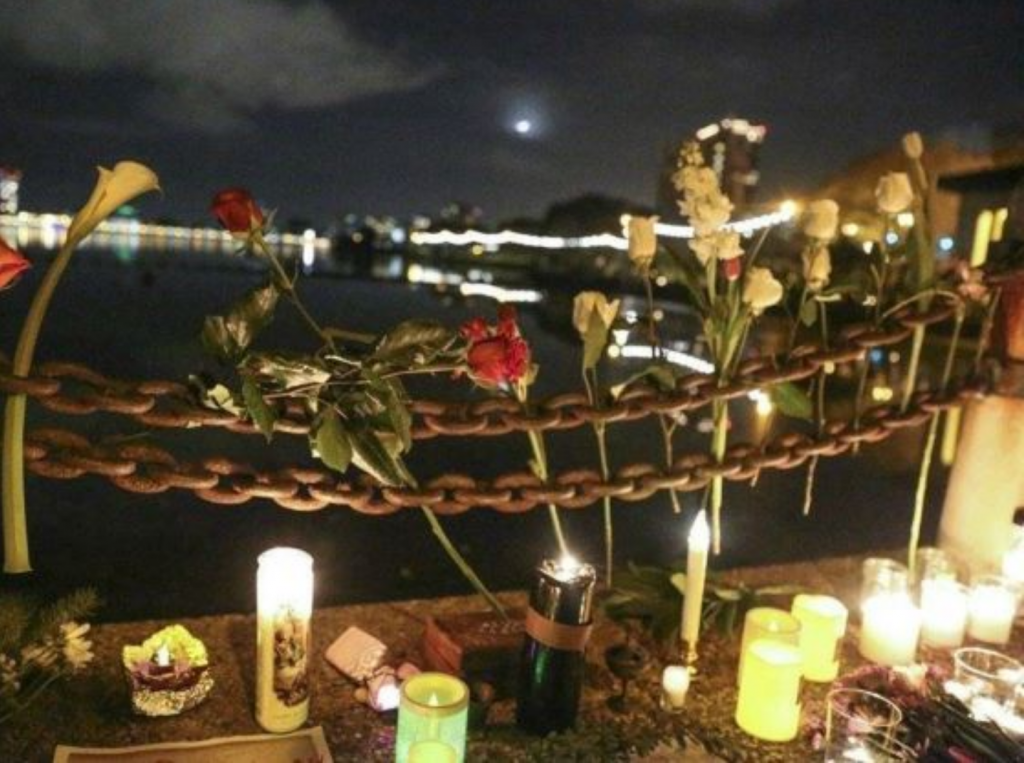The following is a reflection from a CDI-affiliated student based in Oakland, CA.
The Ghost Ship fire in Oakland was a national tragedy in which 36 creative and exuberant people lost their lives. As with any tragedy, the repercussions of loss of loved one continues.
In Oakland, collective responses to the tragedy have been quick and meaningful. The majority of these responses have come from friends and family of people who have passed. This contrasts with the city’s response of increasing fire inspections and active evictions. The city’s response has been mirrored across the United States and heralded as a new moment in which the complex interaction between financial precarity and artistic creation (especially for people marginalized by social and political forces) has become a prominent subject.
In the month after the fire, a community-organized request for a moratorium on evictions was signed by over 1,000 people and sent to the mayor of Oakland. Community spaces were inspected and immediately closed for public events, including Qilumbo, a black and brown led radical community space located in West Oakland. Many linked this wave of inspections and evictions to the ongoing evictions of homeless encampments in the Bay Area.
These events reverberated through the local community and created some trepidation for people who were geographically distant. As in other disaster-related situations, donations were being collected, but these were largely promoted through social media and personal networks. The Red Cross did provide support to family members that could be identified through legal records, but this did little for chosen family, roommates, and loved ones. Many of the close companions of people in the fire had already been living in financially precarious positions, a result of ongoing technological booms that displace communities in the East Bay. Legal family networks were also convoluted by family’s perceptions and acceptance of their queer and trans relations who had passed in the fire.
Navigating privacy became a central issue. In the aftermath of the fire, there was a concerted effort among a group of 4chan users to report DIY (do-it-yourself) spaces across the country (this discussion board has been taken down but it documented here and here). An alt-right affiliated individual known to have harassed and doxxed anti-Trump protestors created a Facebook group ostensibly for those affected by the fire, using a false narrative of personal loss to gather identifying information on people in mourning.
This is only one example of how the private and the public interweave in social media environments. In the wake of tragedy, individuals were compelled to make public statements about their loved ones and to defend the spaces that helped community and individuals thrive. Being public was, and continues to be, a potential vulnerability. For people geographically and socially removed from the site of the tragedy, this can result in a lack of information on resources or needs. Lack of information may compel individuals to give to established organizations, such as the Red Cross, but this is not always the most effective way to distribute funds. Further, large-scale fundraisers may be inhibited in their ability to distribute funding quickly. This has been the case with the Gray Area Oakland Fire Relief Fund.
Independent fundraisers can be a way of maneuvering around the limitations of larger funds. As the account above illustrates, these should be assessed for some level of reliability. When assessing a fund, consider
- The level of transparency of its creators, both in intent and their identification of themselves.
- The types of comments on the funding page and whether or not these are receiving responses.
- Any updates.
If it is a community, rather than individual fund, consider whether or not there is an easy means for those seeking funding to contact organizers. If in doubt, critically review all available material and contact fundraising organizers with any questions. Remember to promote the funds you vouch for, letting other know that fundraisers and other efforts can be trusted.
In Oakland, one community focused immediate relief fund has managed to provide financial support for those impacted by grief and loss. If you would like to donate, please visit the Immediate Oakland Fire Relief fund.
It is orchestrated by individuals who lost chosen family in the Ghost Ship fire. Fund distribution prioritizes “families, survivors, roommates, partners, memorial organizers, qpoc and other intersectionally vulnerable individuals.”




